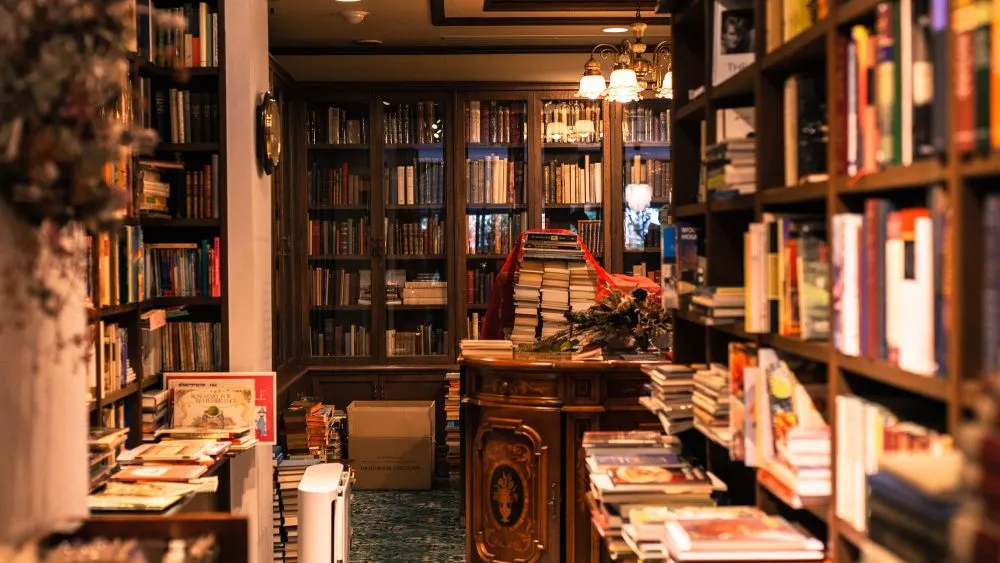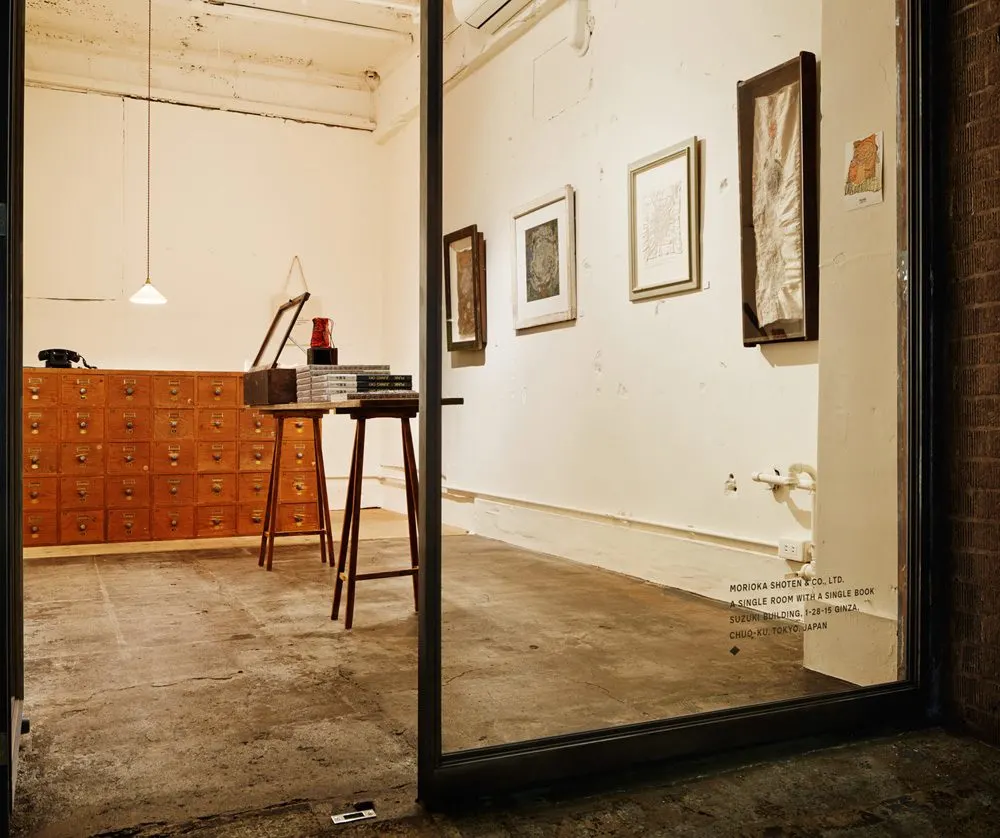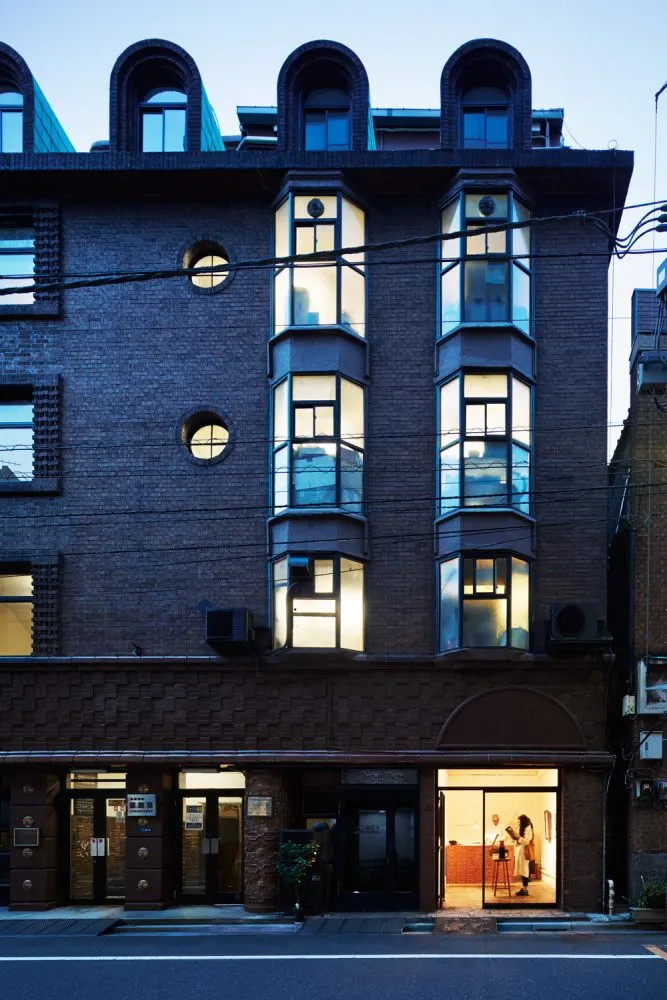Tokyo is full of quirks. That might, in fact, be the most obvious and understated thing we’ve ever said. Did you know Tokyo holds the world’s biggest and smallest bookstores? Get ready to explore Tokyo’s most interesting bookstores. While it might be a land of salarymen being driven to karoshi — death by overwork — it is also a city of alternative music and fashion scenes the likes of which can’t even be recreated in Camden Town.
Tokyo is an unknowable and thrilling labyrinth of alternative culture and arts, and so it only makes sense to find both the world’s largest bookstore and the world’s smallest bookstore hidden somewhere in this labyrinth.

We’ve talked before about Tokyo’s bookstores. The booktown of Jimbocho, at the heart of Tokyo, is a neighbourhood dedicated to bookstores of all types, from a shop that sells old issues of music mags from the 70s to a vintage manga store and beyond.
There, you’ll also find @Wonder, a place with a massive selection of English-language Western comics just upstairs. We’ve even listed ten of our favourite Tokyo bookshops in this list. But we have had yet to mention these two magical places; little and large: the world’s smallest bookstore and the world’s largest bookstore, to be discovered on your next trip to Tokyo!
Daikanyama T-Site (World’s Largest Bookstore)
Whether Daikanyama T-Site is, in fact, the world’s largest bookstore is perhaps contestable. There are shops in the US, the UK, and even in Tokyo itself that might disagree. But Daikanyama is the hill I’m dying on. But what can you expect when you get here?
Daikanyamachō itself is a relaxed and jolly neighbourhood in the hustling and bustling district of Shibuya, Tokyo. Here, life moves at more of a relaxed and enjoyable pace. And so, where better to build an enormous shopping complex dedicated to arts and literature.
This complex is known as Daikanyama T-Site. The complex gets its name not from its shape but by the fact that its outside facade resembles a hand-stitched blanket of interwoven white letter Ts.
Inside, you’ll find Tsutaya Books, a gargantuan bookshop separated out into bookshelves, reading nooks, cafe areas, and lounge areas scattered across three smaller buildings which are all interconnected by a strip called Magazine Street. Everything about Tsutaya Books has reading, learning, relaxing, and book shopping in mind.
The big question for most Western visitors is: are there English books? And, yes, there are. There’s an entire foreign language section where you can pick up English language novels, magazines, study guides, and more. This being the world’s largest bookstore, the selection of choices and categories for both fiction and non-fiction are, quite honestly, staggering.
Obviously, where English books are concerned, this is less so. But the fact that all of this exists in the heart of Tokyo, against the backdrop of crushingly busy Shibuya, makes my heart soar. At Tsutaya Books, customers are very much encouraged to relax, wander, get lost, admire the aesthetics, browse the books, and lose themselves in the atmosphere of the place.
It’s a space for book-lovers and those who wish to learn and read and relax. In many ways, Daikanyama T-Site feels like the evolution of the bookshop.
Beyond books, Daikanyama also recognises the importance of creative arts outside of literature. And that’s why you can also browse a staggering selection of films in their movie department or explore their music department to pick up both CDs and vinyl.
Many people in modern Japan have an emphatic love for buying and collecting vinyl; most famous among them being author Haruki Murakami who has a dizzyingly large personal collection of vinyl, and used to manage a jazz bar before becoming a writer (jazz bars are also everywhere in Tokyo).
If you needed more proof that book buying and vinyl collected belong hand-in-hand, allow Murakami to guide your way! So, Daikanyama T-Site has books, movies, and vinyl to browse and buy. Anything else? Well, the world’s largest bookstore couldn’t call itself a modern bookstore if it didn’t sell coffee as well.
On the ground floor you’ll even find a Starbucks! You can sit, refresh and refuel with a latte, and flick through some of your newest purchases.
Daikanyama T-Site honestly doesn’t give you much incentive to ever leave, and all the incentive to keep returning. It’s a favourite haunt for art and literature lovers in Tokyo, and it’s not to be missed on your next visit to the heart of Japan’s capital.
Morioka Shoten (World’s Smallest Bookstore)
There are different ways to go about buying, supporting, following, enjoying, and loving books and literature. In fact, let’s talk about that for a second. The publishing industry, bookstores, the lives of booksellers, publication dates, press releases, release hype, it’s all so exhausting and overwhelming.
If you’re in the book industry even a little bit, as we are, and you try your very best to keep up with the biggest titles, as we do, it can be downright daunting to always follow along with the hype. To be part of the conversation, the zeitgeist, the excitement. An interesting way to, perhaps not counter this per se, but at least curtail or refocus this hype and potential exhaustion is to sell only one single book.

And that’s what Morioka Shoten does. This single room in Ginza sells a single book. Or, to be more precise, each week this tiny one-room bookstore — the world’s smallest bookstore — chooses a book, gets a heap of stock in for this one book, and sells it for one week.
The following week, Morioka Shoten selects a different book, buys a bunch of stock, puts it on display, and sells it. And so it goes, week after week, all year round. This is more than just a gimmick (and even if it weren’t, it’s a gimmick that undeniably works). It’s a philosophy. It’s a genuinely novel (pardon the pun) approach to bookselling; to curating and promoting literature.
And while the much-touted concept of Japanese minimalism hyped and capitalised on by people like Marie Kondo is largely a myth (and a deeply frustrating one), there is some truth to it in specific circumstances. And this is one of them.

Morioka decorates his one-book display with flowers and trinkets, but the store itself is largely left empty. The concept of ma (empty space) is often seen utilised or represented in Japanese art, and is an integral part of Japanese design.
It can be seen very clearly here, as the open and empty space surrounding this single book on display allows breathing room and the encouragement of focus on this solo piece of art.
You’re not being tempted by another book in the corner of your eye or suffering from sensory overload as the shelves are crammed with more and more potentially wonderful novels. There’s just the one book. Buy it, or don’t. That’s your choice. Next week, there will be another.


